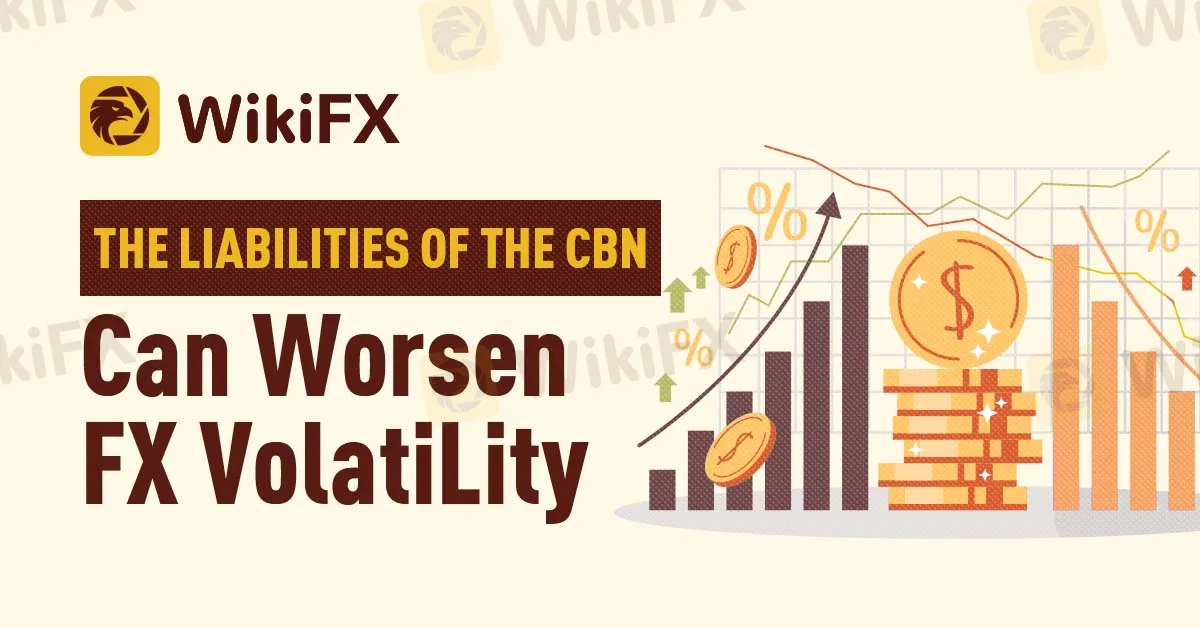Abstract:Financial analysts suggested Wednesday that Nigeria's large FX liabilities to external creditors may intensify the country's forex volatility and naira depreciation and the elevated national risk profile may deter overseas investments

Financial analysts suggested Wednesday that Nigeria's large FX liabilities to external creditors may intensify the country's forex volatility and naira depreciation and the elevated national risk profile may deter overseas investments.
The CBN's dollar-denominated borrowings, according to the experts who spoke on the audited top bank, threatens the country's foreign reserves and worsens the situation.
In the first quarter, Nigeria's overall national debt increased to N49.95 trillion, or roughly $108.30 billion. These did not include the N22.72 trillion in “Ways and Means” that were securitized in May.
Excluding fresh borrowings since April 2023, the overall national debt as of the most recent calculation was around N73 trillion.
To generate money from the domestic capital market to close the budget gap and increase national revenue, the Federal Government issues debt securities once a month.
According to the CBN's audited report, it borrowed N3.1 trillion ($7 billion) and N230 billion ($500 million) from JP Morgan and Goldman Sachs and owes an additional N3.15 trillion ($6.3 billion) in forward payments on foreign currencies.
The lending to the government, which accounted for a sizeable share of loans and receivables and contributed N610 billion to total impairment loss and credit loss charges, or 74% of the loans, was a major source of loans and receivables. According to experts questioned yesterday, unless the government accelerates crucial reforms to increase foreign reserves and reposition the central bank, the situation may get worse, forex volatility, naira devaluation, a high sovereign risk profile, and high national debt.
To stabilize the economy, CBN's top bank borrowed $7.5 billion from JP Morgan and Goldman Sachs.
Debt Management Office (DMO), which is in charge of managing Nigeria's sovereign debt difficulties, distanced itself from the CBN's dollar-based borrowings. Neither the DMO nor the federal government were parties to the borrowings, according to DMO, the CBN's borrowings or liabilities under foreign currency forward contracts in its national debt reports.
The CBN's financial reports, according to Professor of Capital Markets of Securities and Investment Management Department at Nasarawa State University, Keffi, Prof. Uche Uwaleke, highlighted why the apex bank had been hindered in managing the country's currency.
Even if these agreements are legal, result from them raise questions about why they were made in the first place. The process of lending securities to a third party effectively transfers ownership to the recipient. It follows that the current level of around $33 billion in liquid external reserves does not accurately reflect the genuine liquidity position of reserves, since a sizeable chunk has been bound by these contracts. It is understandable why the CBN has had difficulty intervening in the forex market.
“Following this disclosure, the current volatility in the forex market may linger for quite some time, except the reserves witness substantial accretion from crude oil sales proceeds,” said Uwaleke, who presides the Association of Capital Market Academics.
In relation to forward liabilities, we were given a glimpse of our net foreign reserves. The amount is less than the widely publicized $33 billion.
In the medium to long term, Amolegbe stated, “we expect that some of the policy positions taken so far and moving forward by the start to reduce public borrowings and increase reserves.”
He pointed out that the government's actual borrowing from the CBN is a staggering 75% of all loans.
There is a need to confirm whether the securities given to get the foreign credits are owned by CBN or the federal government, according to Mr. David Adonri, managing director of Highcap Securities.
According to him, the exercise may be legal if the securities are owned by the central bank and the external debts are covered by the CBN's borrowing authority. In that case, the liability would only belong to the CBN and not the federal government.
Whoever is responsible or not, the debt increases the total amount owed, worsens its financial situation. The CBN's net foreign reserve is currently a pitiful $17 billion after deducting this obligation from it. This naira buffer is relatively small, according to Adonri.
All the experts did applaud the new Bola Tinubu administration's transparency initiatives, adding that they would increase investors' confidence in the economy.










